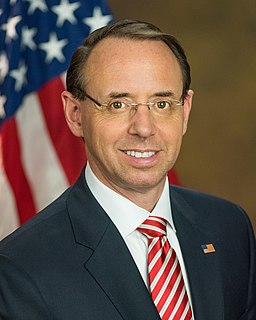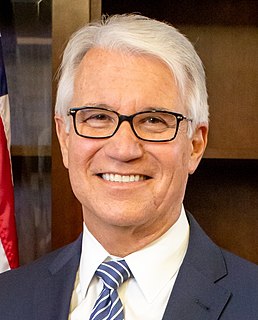A Quote by George W. Bush
I'm absolutely confident that everybody that's been put to death is two things: One, they're guilty of the crime charged, and, secondly, they had full access to our courts, both state and federal.
Related Quotes
Let's put it in perspective at the United States Supreme Court, which hears maybe 60 cases a year, most of the cases are resolved without much dispute. The 10 or 15 that are controversial we all know about, and we hear about. The federal courts hear just a tiny sliver of the cases that go to court in this country. Most of the cases are in the state courts. And most legal issues never go to court. So, the legal system is actually not in jeopardy. At the same time, access to law is in jeopardy.
Given my experience, I believe there are three compelling reasons why the death penalty should be replaced. (1) The criminal justice system makes mistakes and the possibility of executing innocent people is both inherently wrong and morally reprehensible; (2) My personal experience and crime data show the death penalty does not reduce crime; and (3) The death penalty wastes precious resources that could be best used to fight crime and solve thousands of unsolved homicides languishing in filing cabinets in understaffed police departments across the state.
I think basic disease care access and basic access to health care is a human right. If we need a constitutional amendment to put it in the Bill of Rights, then that's what we ought to do. Nobody with a conscience would leave the victim of a shark attack to bleed while we figure out whether or not they could pay for care. That tells us that at some level, health care access is a basic human right. Our system should be aligned so that our policies match our morality. Then within that system where everybody has access, we need to incentivize prevention, both for the patient and the provider.
Proper training and federal supervision in state-federal partnerships are essential to both assuring constitutional rights and enforcing our immigration laws. Our Founding Fathers' concept of federalism does not prohibit such cooperation, and we have learned from experience that joint efforts work best.
In the United States the White House has appointed two different independent panels who had full access to classified information for the last 10 years that master balance has been in place in the United States, and they found that despite intercepting the calls - everybody in the country, - it had never stopped a single terrorist attack. So the question is, why would these officials be pursuing these policies, if we know they don't work, if they don't stop terrorism?































